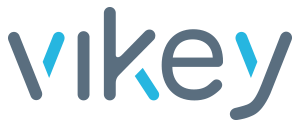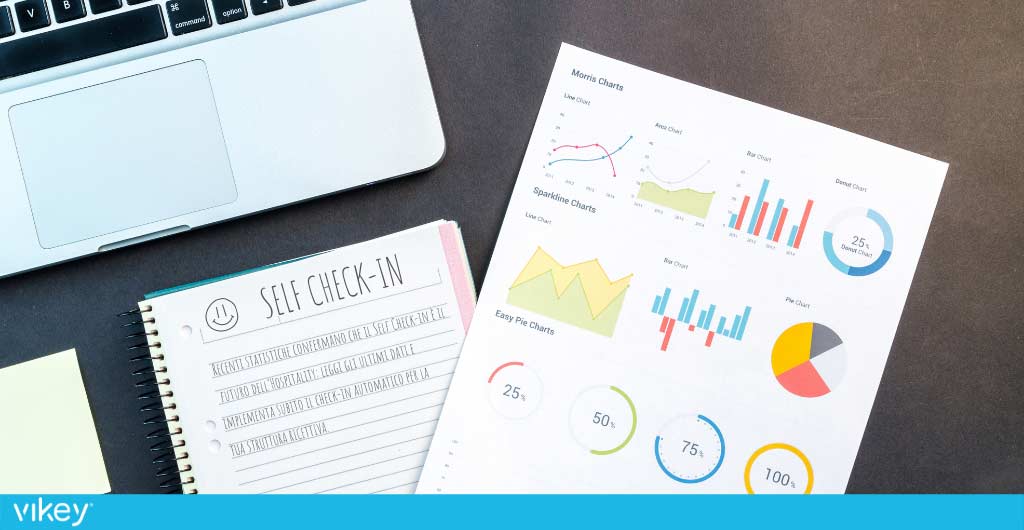Recent statistics have confirmed that Self Check-in is the future of Hospitality: read the latest data and implement automatic check-in for your facility today.
Self Check-in: some statistics
Self Check-in, i.e. the automatic check-in tool that allows hotel, vacation home or b&b guests to enter their room directly through the use of domotics solutions provided by the facility, is now the future of Hospitality.
This is in fact a great opportunity for hosts to allow guests to enter apartments or rooms without the need for the staff to be physically present at the time of arrival to hand over the keys.
Not only that, but thanks to Self Check-in it is also possible to collect all payments from the guest, including tourist tax, thus lightening the workload for reception.
Numbers in hand, let’s take a look at the latest statistics that confirm the rise of this technology.
Reduction of waiting times
Following the introduction of automated passport control solutions at customs control points, JFK and Newark Liberty airports have registered a 22% decrease in waiting times from 2013 to 2014.
The same thing happened at some restaurants that offered self-service order and pay, where a 2019 study found that 30% of customers preferred to do it themselves rather than standing in line at the register if the two lines were the same length.
According to another PYMTS survey, 49.4% of retail customers use self-service checkouts because they believe the experience is faster, while 34.7% use them because they have shorter lines.
These trends can be applied to the hotel industry, which means Self Check-in can greatly reduce wait times at the front desk, increasing guest satisfaction.
Speed of payments
In supermarkets, nearly all respondents in a study done by Shekel Brainweigh said that fast payment would also greatly improve their shopping experience.
This is why they much prefer the self-service checkouts, which are faster than the ordinary checkout.
90% of Shoppers Want Self-Checkout Machines to Automatically Identify Items According to Shekel-Sponsored Consumer Survey https://t.co/bWvzr5QZS5 pic.twitter.com/E9TMWi8kAp
— Latest News from Business Wire (@NewsFromBW) January 12, 2020
In addition, one American study from 2019 shows consumer usage and interest in using in-store self-service checkouts. 59% of 18- to 34-year-olds and 39% of 55- to 65-year-olds reported using self-service checkouts regularly.
In tourism, when guests are in a hurry they may get frustrated if the only option to check-in is to wait in a long line with other guests. This is why a Self Check-in would be ideal for both them and the hotel staff.
Some studies of consumer preferences for digital payment methods are very interesting.
In a survey conducted by Rapyd in 2020 found that 60% of consumers plan to use contactless methods like Apple Pay or Google Pay instead of cash, which, for hosts, means guests are willing to pay for their stay via Self Check-in rather than rely on front desk staff to handle cash.
Even one study conducted by Mastercard showed that 79% of consumers worldwide and 91% in the Asia-Pacific region opt for contactless payment methods instead of physical cards or cash.
Cross-selling opportunity
Among the success stories, the US fast food chain Taco Bell found that the average order value is increased by 20% after implementing the option to order via the app.
Not only that, but the customization and self-management of their menu option has enticed customers to order additional ingredients and dishes.
Another study conducted by Oracle on the other hand, highlighted how fans in a stadium would have been happy to spend an additional $20 on food and drink if it meant they could spend half the time standing in line.
The same trend can also be applied in the hospitality world as well because guests may be more inclined to purchase extra services through a self-service platform than at the front desk, avoiding queues and using the saved waiting time in indulging in an upgrade.
In this regard, Vikey’s Self Check-in acts as a true Digital Concierge, as from the time of booking and for the entire duration of the stay, guests will be able to purchase and / or book additional services and experiences offered by the facility, such as excursions, dinners, breakfast, transfers and more.
Automation and accuracy in the execution of bureaucratic transactions
Artificial Intelligence is already becoming a regular part of our daily life.
According to McKinsey, companies could free up much of their time by automating data processing tasks. Reception agents, for example, spend hours entering personal data, recording payments or compiling various reports.
Vikey’s Self Check-in allows guests to upload photos and their personal data, as well as other documents necessary for their stay. The platform will automatically send the files to the Web Lodging Portal, calculate the tax and allow communicating the presence of guests to ISTAT through the file that auto-compiles with the collected data. A considerable lightening of the workload for the reception desk.

